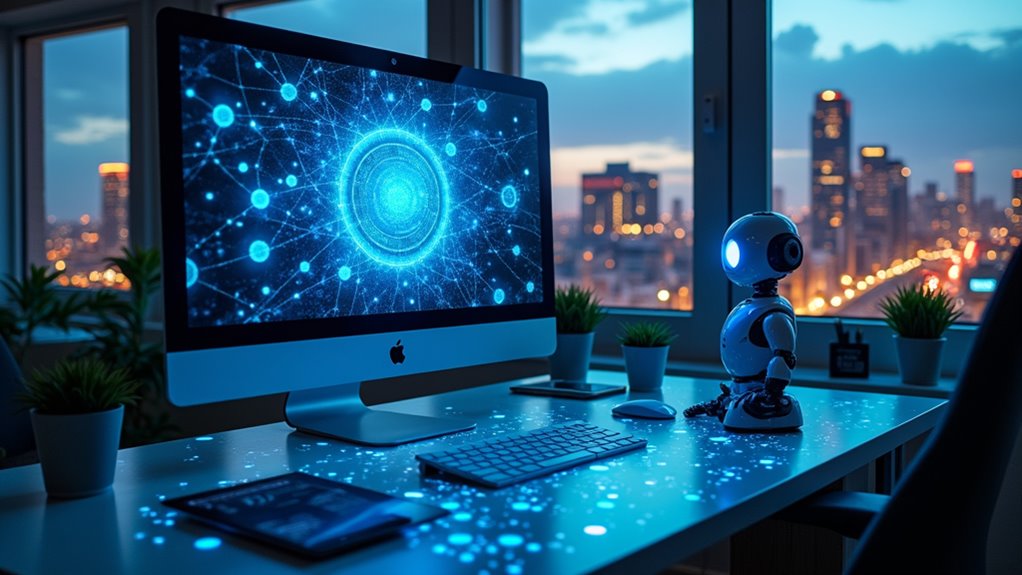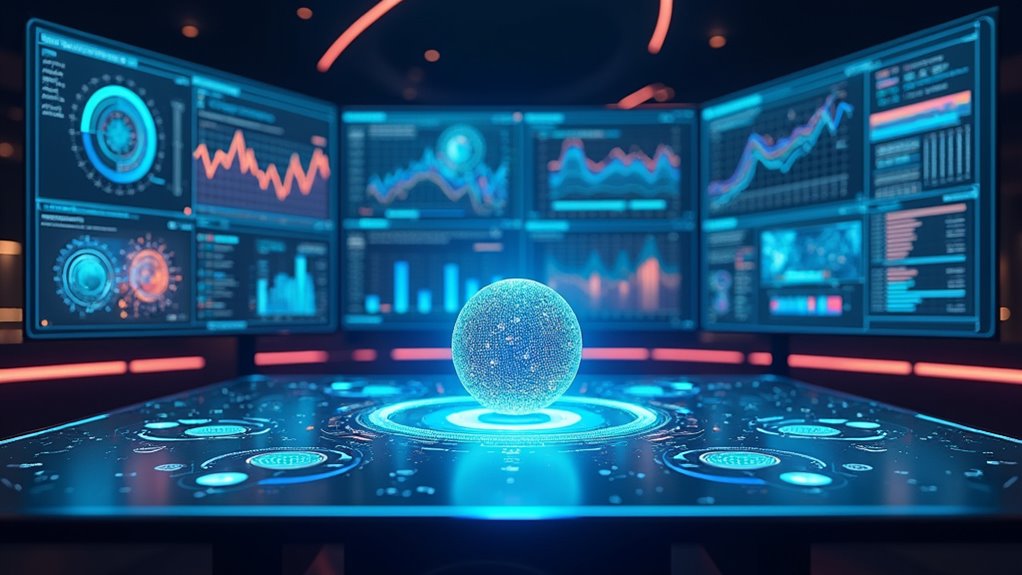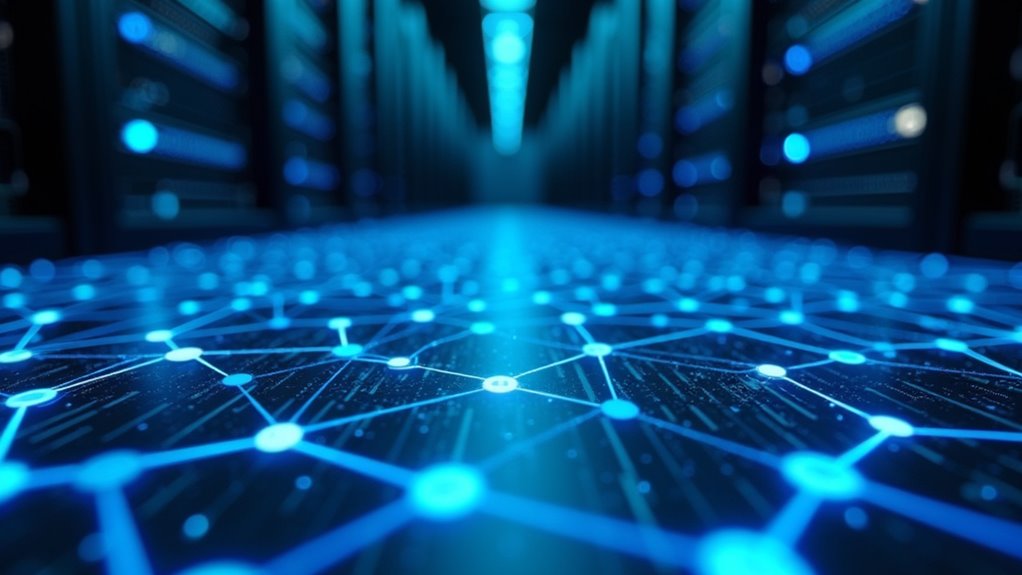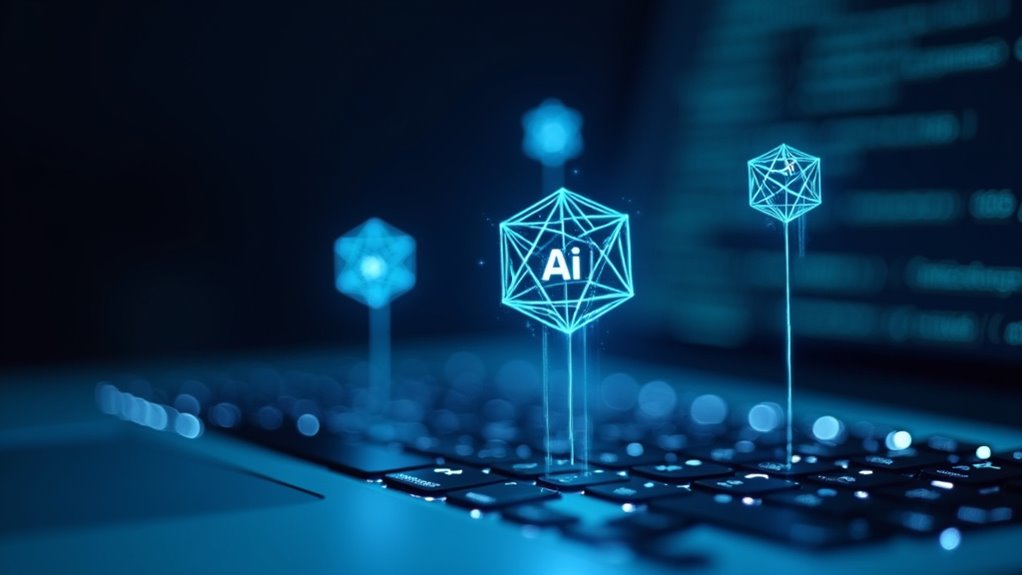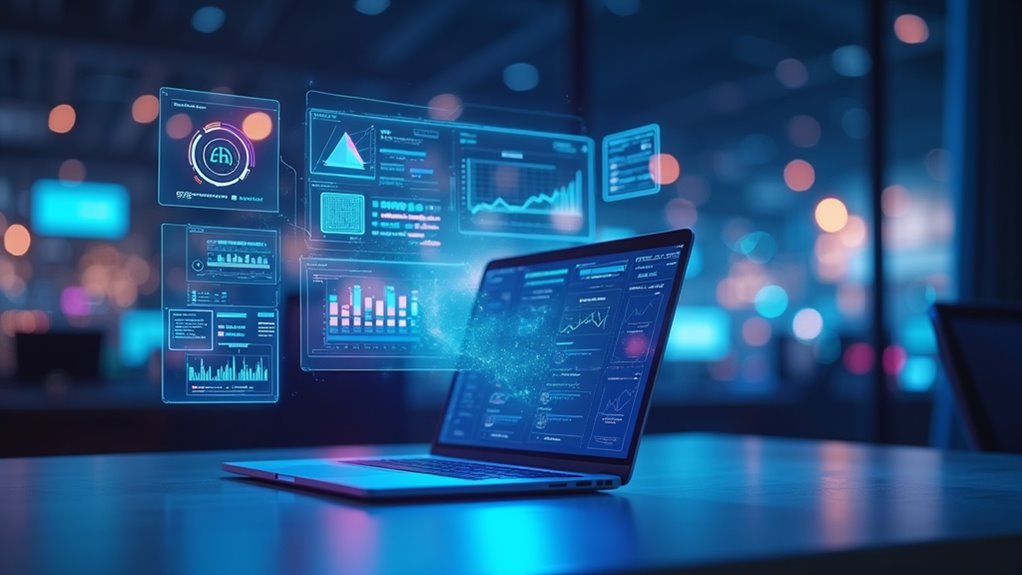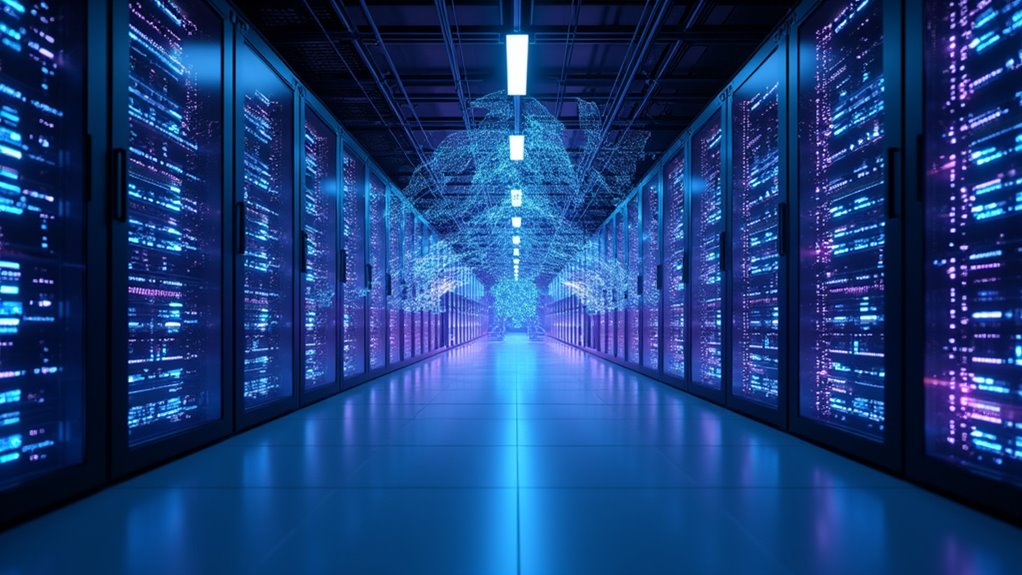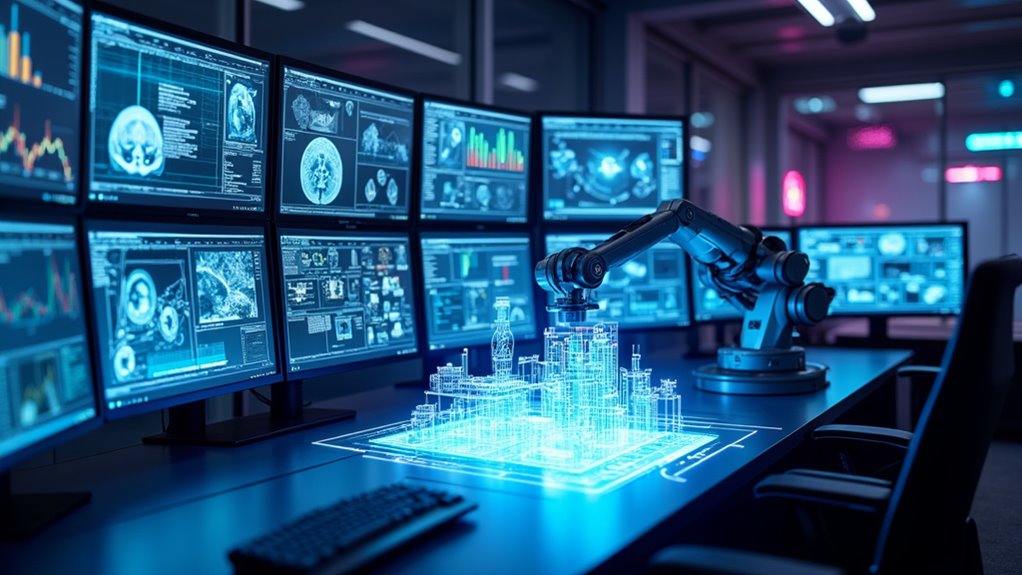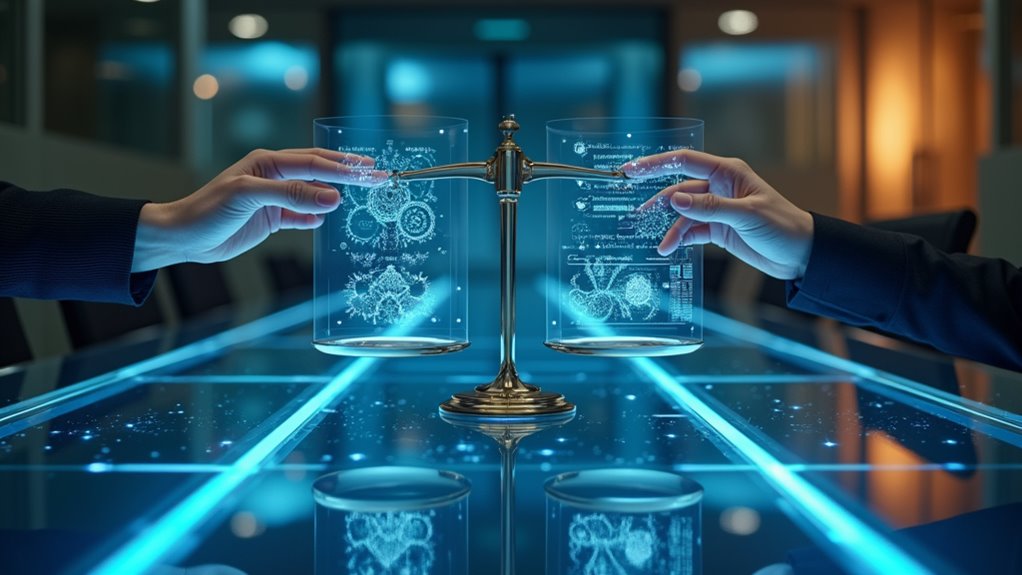ChatGPT and advanced AI aren’t just fancy tech—they’re reshaping our world right now. These systems already ace medical exams, write essays teachers can’t distinguish from student work, and deliver real business ROI. By 2025, AI won’t just respond to commands but anticipate needs, transforming education, business, and daily life. The $4.4 trillion productivity boost isn’t science fiction—it’s inevitable. Prepare your skills and strategies now, before the cognitive revolution leaves you behind.
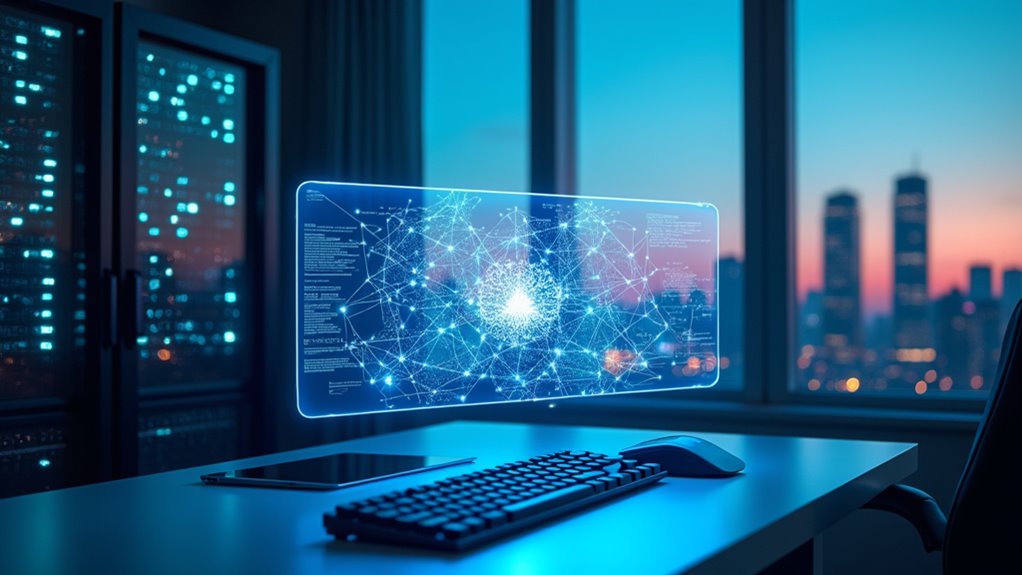
While early AI models struggled with basic conversations, today’s advanced systems like ChatGPT and GPT-4 have transformed into sophisticated digital minds capable of passing bar exams and medical licensing tests.
They’re not just answering questions anymore—they’re reasoning through complex problems with nuance comparable to humans with advanced degrees. This evolution raises profound AI Ethics questions about what roles these systems should play in society.
ChatGPT Applications now span from creative writing to medical diagnostics, blurring the line between human and machine capabilities. These AI tools like ChatGPT enhance the learning process when used responsibly by students to draft ideas while still maintaining academic integrity.
The multimodal revolution has supercharged these systems beyond mere text. Today’s AI processes images, audio, and text simultaneously—just like you do. This isn’t science fiction; it’s happening now. Companies are seeing real returns, with over 70% reporting positive ROI on their AI investments. Marketing teams are leveraging predictive analytics to anticipate customer behavior and deliver hyper-personalized experiences. The technology isn’t just fancy; it’s practical.
Writing education stands at a crossroads. Tools like ChatGPT generate essays indistinguishable from human work, forcing educators to reconsider what “cheating” even means. The question isn’t whether students will use AI, but how to teach them to use it responsibly.
Get ready—these tools aren’t going away.
By 2025, AI agents won’t just respond to your commands; they’ll anticipate your needs. Systems like Salesforce’s Agentforce already let users deploy autonomous AI helpers for complex tasks. These aren’t glorified calculators; they’re digital assistants that plan, execute, and learn from mistakes.
The democratization of AI means everyone, not just tech wizards, can harness this power. Regular employees now collaborate with AI across departments, dramatically boosting productivity. This accessibility drives innovation at unprecedented speeds.
Is this future exciting or terrifying? Probably both. The AI revolution won’t wait for those unprepared. Organizations must optimize their AI investments now or risk falling behind. The question isn’t whether AI will transform society, but how quickly—and whether we’re ready for what comes next. The economic impact cannot be overstated, with generative AI representing a cognitive industrial revolution potentially driving $4.4 trillion in productivity growth.
Frequently Asked Questions
Cómo Afectará La IA Los Empleos Tradicionales?
La automatización laboral impulsada por IA reemplazará funciones rutinarias y administrativas primero.
Cerca del 40% de empleos globales enfrentarán cambios significativos según el FMI.
Las habilidades necesarias evolucionarán, priorizando pensamiento crítico, creatividad y capacidades interpersonales—aspectos que las máquinas no dominan.
Los trabajadores deberán adaptarse mediante aprendizaje continuo.
La colaboración humano-máquina definirá el futuro laboral, no la sustitución completa.
La resistencia al cambio constituye el mayor obstáculo para muchos profesionales.
Qué Riesgos Éticos Presenta Chatgpt?
ChatGPT presenta varios riesgos éticos significativos.
El sesgo algorítmico puede reproducir prejuicios sociales existentes, afectando decisiones importantes en contratación o evaluación.
¿Preocupado por tu información? Deberías estarlo. La privacidad de datos es otro problema grave, ya que la información personal introducida podría filtrarse, usarse para entrenamiento sin consentimiento o incluso robarse.
También genera desinformación convincente y puede perpetuar perspectivas occidentales dominantes, excluyendo otras voces culturales importantes.
Puede La IA Realmente Entender El Contexto Cultural?
La IA actual puede procesar elementos culturales básicos, pero carece de verdadera comprensión de contextual nuances que los humanos captan naturalmente.
Aunque avanza rápidamente, todavía tropieza con referencias culturales complejas y matices regionales.
La cultural sensitivity es un desafío persistente; los sistemas pueden traducir palabras pero no siempre captan el significado sociocultural profundo.
Los esfuerzos para incorporar datos diversos están mejorando esto, pero la brecha entre procesamiento y comprensión genuina permanece significativa.
Cuánto Tiempo Hasta Que La IA Supere La Inteligencia Humana?
El futuro incierto de cuándo la inteligencia artificial superará a los humanos genera debates intensos.
Los expertos no logran consenso—algunos predicen 2026, otros ven décadas de espera.
¿La verdad? Nadie lo sabe con certeza.
Los avances son impresionantes (¡hola, GPT-4!), pero persisten obstáculos técnicos y energéticos significativos.
Las predicciones varían dramáticamente según quién las haga, y los desafíos de hardware no son poca cosa.
Prepárese para sorpresas, pero no contenga la respiración.
Qué Regulaciones Existen Para Controlar El Desarrollo De La IA?
La UE lidera con regulaciones que entrarán en vigor en febrero 2025, prohibiendo sistemas que manipulen comportamientos o exploten vulnerabilidades.
¡Sorpresa! No todo está permitido en el salvaje oeste de la IA.
Los estándares de ética exigen transparencia en datos de entrenamiento y evaluaciones de impacto sobre derechos fundamentales.
Las regulaciones internacionales varían, pero comparten preocupaciones: controlar la identificación biométrica, evitar manipulación subliminal y establecer sanciones—hasta el 7% de facturación global por incumplimientos graves.
